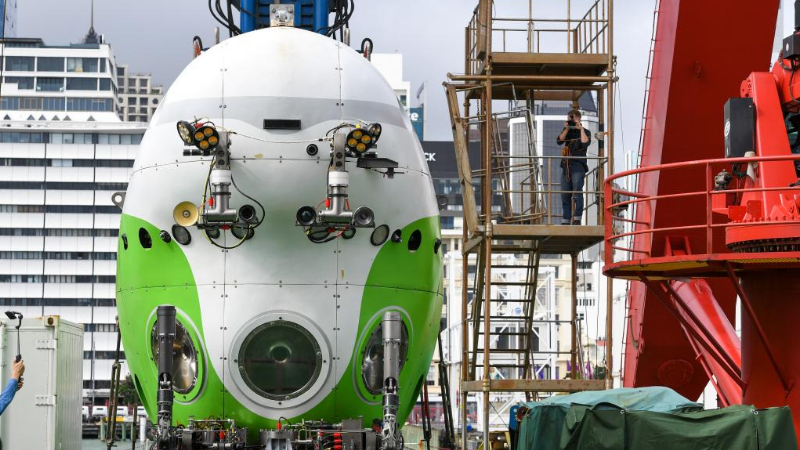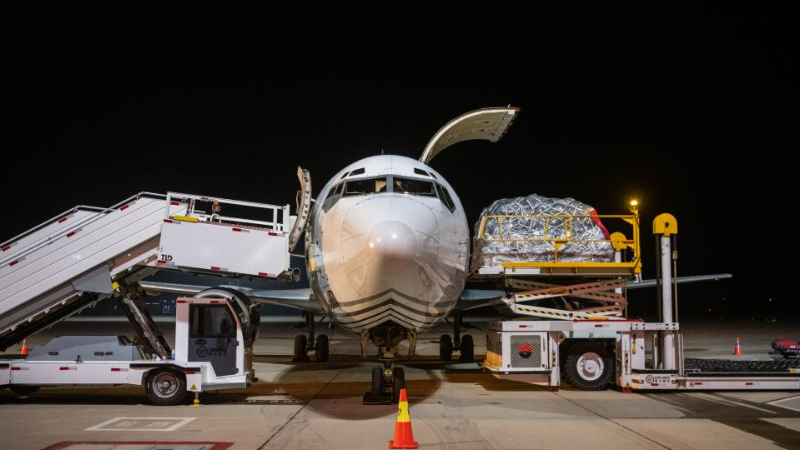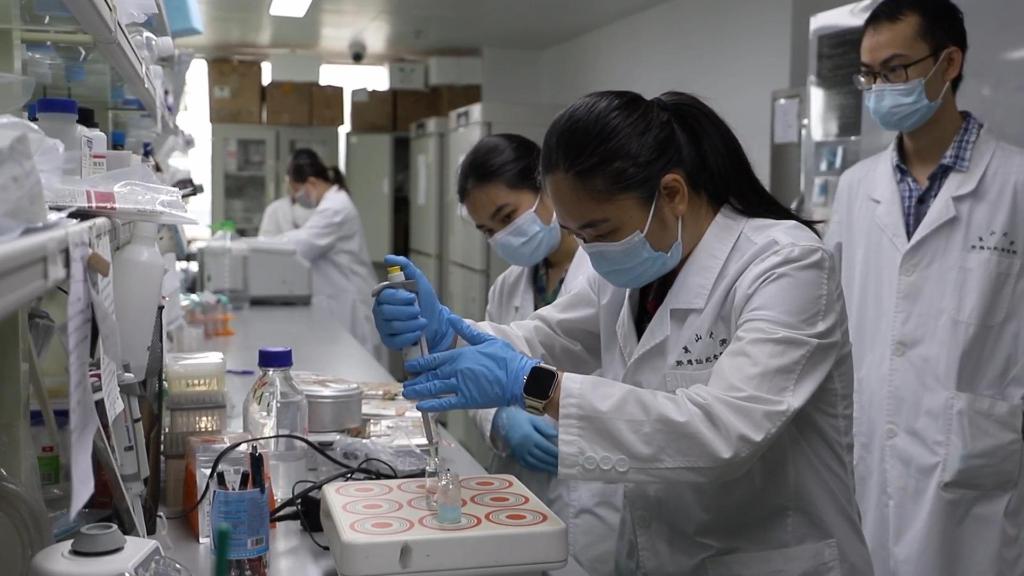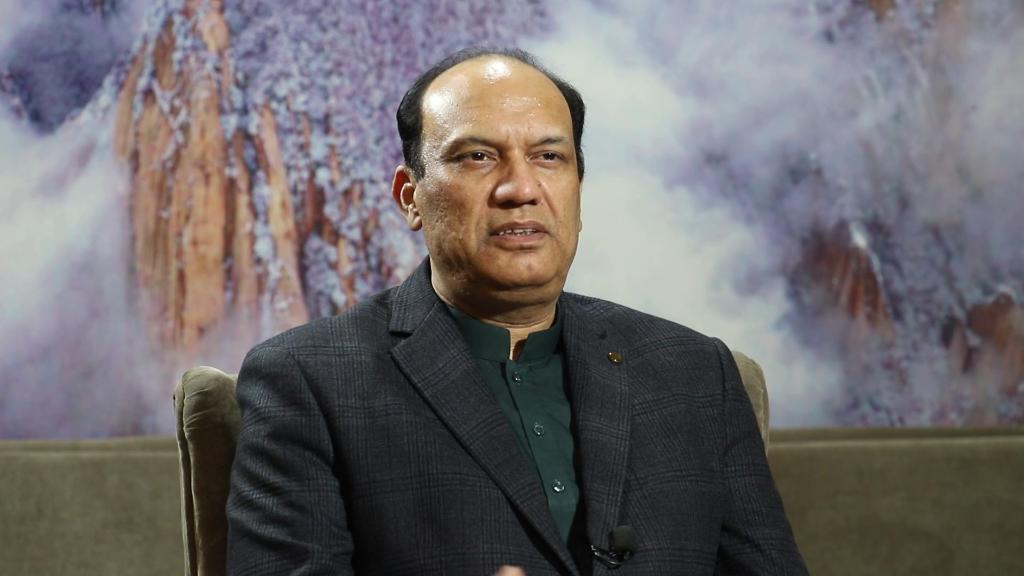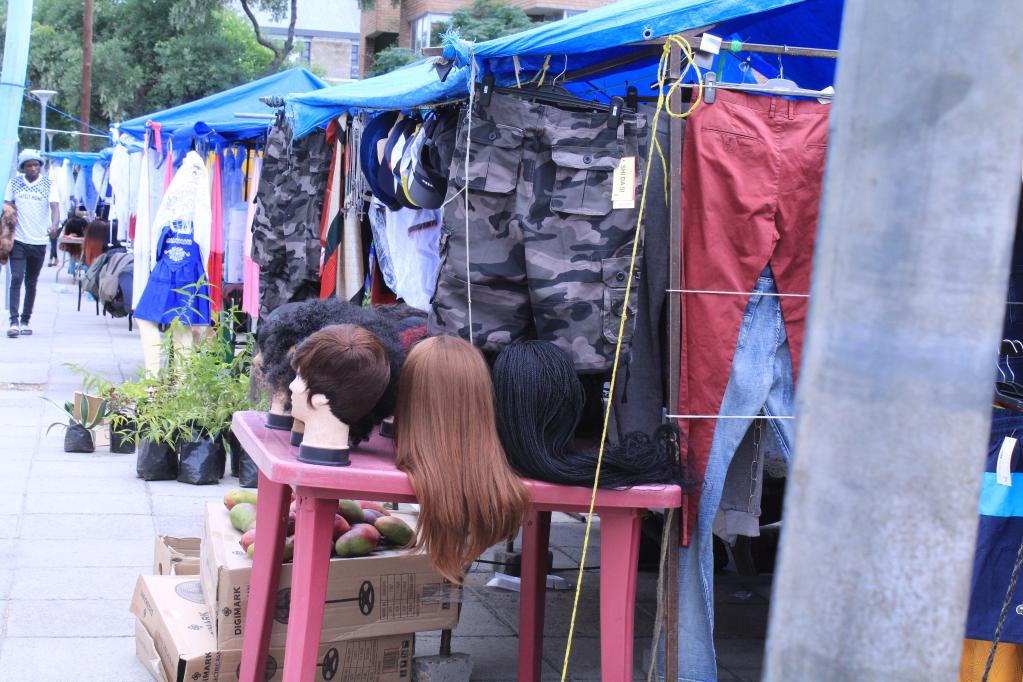
This photo shows makeshift stores erected along Blue Jacket Street in Francistown, Botswana, Nov. 29, 2022. (Xinhua/Shingirai Madondo)
Along busy streets and junctions in Francistown, Botswana's second-largest city, potential customers occasionally stop to examine different clothing items from roadside stores.
GABORONE, Dec. 1 (Xinhua) -- Along busy streets and junctions in Francistown, Botswana's second-largest city, potential customers occasionally stop to examine different clothing items from roadside stores.
This new trend of boutiques on wheels and makeshift stores is becoming popular in Botswana's major cities and towns, as customers use their bargaining skills while sellers sweet-talk them into buying.
Patleletso Thembani, an owner of a mobile boutique, has been selling mostly second-hand clothes from her car boot and has mastered the intricate art of persuasion.
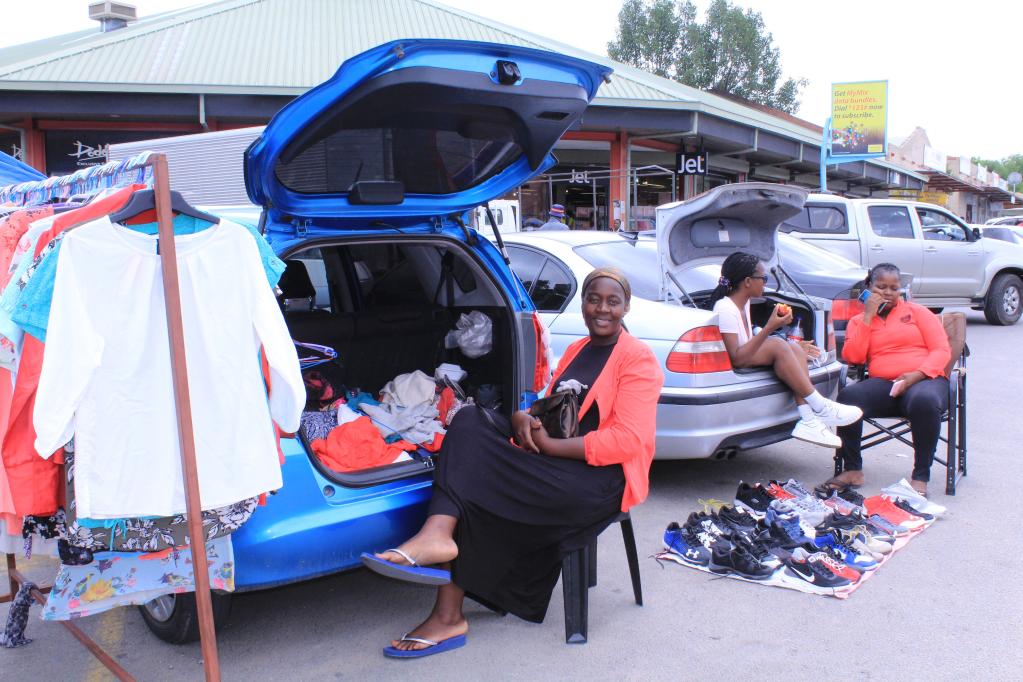
Patleletso Thembani, an owner of a mobile boutique, sits next to the boot of a blue car along Haskins Street in Francistown, Botswana, Nov. 29, 2022. (Xinhua/Shingirai Madondo)
Thembani, a 43-year-old resident of Francistown, failed to secure a decent job after losing gainful employment as a cashier at a local supermarket on account of the COVID-19 pandemic. She then decided to venture into mobile vending after a friend enlightened her about an opportunity of buying second-hand clothes in bulk for reselling on the busy streets of Francistown.
"I got depressed after losing my job in 2020. But I had to borrow some money to start a vending business," Thembani told Xinhua in a recent interview conducted along the busy streets of Francistown.
Her mobile boutique has aided the mother of two in educating her children and supporting her family back in Siviya Village in the northeastern part of Botswana.
She said she would not choose formal employment over vending because she made between 1,000 pula (about 78 U.S. dollars) and 1,500 pula per day.
"Many companies in Botswana cannot pay more than 6,000 pula per month for a full-time job. So venturing into mobile vending made me able to fend for my family," she said.
According to Statistics Botswana, the unemployment rate in the southern African country is estimated at 17.7 percent, while the national poverty incidence is 16.3 percent.
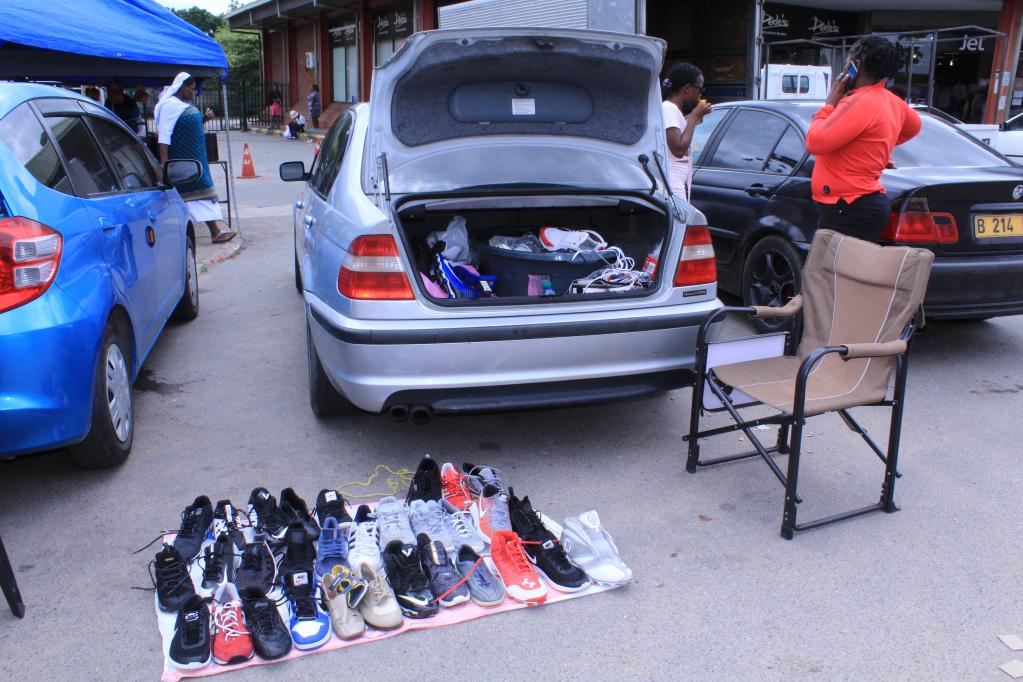
A parked vehicle with its boot wide open serves as a shop along Haskins Street in Francistown, Botswana, Nov. 29, 2022. (Xinhua/Shingirai Madondo)
It is against this backdrop that Thembani is not alone in this venture. Mobile and makeshift stores have become a common feature in Francistown. The economic fallout from the pandemic has forced many people into informal trade, as it provides self-employment and supplies consumers with goods at a lower cost than formal stores.
The 21-year-old Kaone Moloswa is a student at the University of Botswana pursuing studies in finance. Meantime, she is vending from the boot of her mother's car.
"I am preparing myself for the future. Chances of getting employment soon after finishing university are now very slim these days in Botswana," said Moloswa, who specialized in selling second-hand shoes.
Miriam Dickson, a 50-year-old grandmother of three, said she worked for 15 years but failed to make ends meet. After deciding to venture into vending, Dickson realized that making a makeshift store is better than renting buildings because rentals are too expensive.
"In addition, there is more human traffic on roadsides. So we meet different kinds of people, and that is how we do business," said Dickson.
Boitumelo Dingalo, one of the small business owners eking out a living on the busy junctions of Francistown, also said the main advantage of vending is the flexible working hours.


